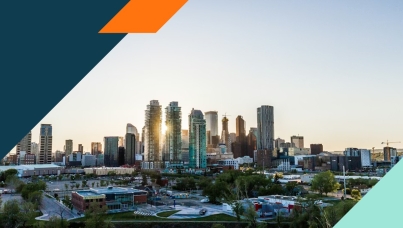BC Liberals Mid-Term Assessment
By Nearly Two-to-One Margin, British Columbians think Province Now in Worse Shape than Better Shape
Public Thinks Higher Income British Columbians and Large Corporations Better Off - Lower Income Residents Worse Off
BC Liberals Continue To Lead, But Half Of Liberals Only Supporting Party Because There Is No Reasonable Alternative
Three-Quarters Say It Would Make No Difference If Joy MacPhail Replaced As NDP Leader
Vancouver, BC - A new Ipsos-Reid poll shows that only one-quarter (24%) of British Columbians think the province is in better shape overall than when the BC Liberals took office two years ago. Nearly twice as many BC residents (45%) think the province is now in worse shape overall. British Columbians see a divide in who has gained and who has lost under the last two years of Liberal rule. A majority thinks that higher income British Columbians (58%) and large corporations (61%) are better off than when the Liberals were elected. In contrast, a majority (62%) of British Columbians believe that lower income residents are worse off than two years ago.
Meanwhile, the BC Liberals (44%) continue to hold a sizable advantage over the NDP (28%) and Green Party (18%) among decided voters. A disconcerting note for the Liberals, however, is that half (48%) of their voters are supporting the party more because of a belief there is no reasonable alternative than out of support for the Liberal's policies and actions (47%). Finally, as the NDP move toward a leadership convention later this year, only two-in-ten (18%) residents say they would be more likely to consider voting NDP if a new leader is chosen to replace Joy MacPhail. Most British Columbians say a new leader would have no impact (74%) or would make them less likely (5%) to consider the NDP.
These are the findings of a BC Ipsos-Reid poll conducted between May 6th and May 12th, 2003 among a representative cross-section of 800 British Columbia adults. These data are statistically weighted to ensure the sample's regional, age and sex composition reflects that of the actual BC population according to 2001 Census data. With a provincial sample of 800, one can say with 95 percent certainty that the overall results are within 1773.5 percentage points of what they would have been had the entire adult BC population been polled. The margin of error will be larger for population sub-groups.
By Nearly Two-to-One Margin, British Columbians Think Province Now In Worse Shape Than Better Shape
British Columbians are somewhat negative when it comes to assessing the changes in the province during the first two years of Liberal government. Only one-quarter (24%) of BC residents thinks the province is now in better shape overall than two years ago. Nearly twice as many residents (45%) think the province is now in worse shape overall. Three-in-ten (30%) think BC is in about the same shape as two years ago.
While these results are probably not what the Liberals are hoping for, a silver lining is that these findings are an improvement over an Ipsos-Reid survey taken one year ago in May 2002. At that time, 53% (vs. 45% today) thought the province was in worse shape than when the Liberals were first elected, while 20% (vs. 24% today) thought it was in better shape and 26% (vs. 30% today) thought it was in the same shape.
There are several regional and demographic differences in this year's results.
Ipsos-Reid asked British Columbians whether lower income, middle income and higher income British Columbians are better off, worse off or about as well off as when the BC Liberals were elected two years ago. The findings reveal a public perception that higher income British Columbians have gained and lower income British Columbians have lost under the Liberals. Six-in-ten residents think that higher income residents are now better off (58% better, 8% worse) and that lower income residents are now worse off (62% worse, 13% better). While the public is more split on how middle income British Columbians have fared under the Liberals, the tone is generally negative (47% worse, 14% better).
An interesting finding is that these perceptions are similar across income categories. For example, the perception that higher income British Columbians are better off is held by a majority of lower income residents (54%,
The public also sees a divide in how businesses have fared since the Liberals took office. Six-in-ten (61%) British Columbians think large corporations are better off (vs. 8% worse off). Opinion is split three ways, however, on the fortunes of small businesses. Roughly equal numbers of British Columbians think small businesses are better off (27%), worse off (35%) and about as well off (31%) since the BC Liberals were elected two years ago.
BC Liberals Continue To Lead, But Half Of Liberals Only Supporting Party Because There Is No Reasonable Alternative
Provincial party vote preferences have not changed in any meaningful fashion since an Ipsos-Reid survey conducted in March 2003. Currently the BC Liberals have the support of 44% (unchanged) of decided and leaning voters in British Columbia, compared to 28% (down 2 points) for the NDP. The Green Party sits at 18% support (down 1 point), followed by BC Unity at 5% (up 2 points). These results exclude the 23% of British Columbians who are either undecided or show no preference for any party.
Current BC Liberal supporters are evenly divided between two motivations for backing the Liberal Party. Half (48%) say their support for the Liberals is based more on a "belief that there is no reasonable alternative to the Liberals". The other half (47%) supports the Liberals based more on an "approval of their policies and actions".
The regional results continue to show a huge divide between the Lower Mainland and the rest of the province. The BC Liberals have a 25 point lead over the NDP in the Lower Mainland (50% to 25%), but are in a much tighter race with the NDP in the rest of the province (Interior/North: 34% LIB vs. 28% NDP; Island: 39% LIB vs. 37% NDP).
Meanwhile, the BC Liberals (44%) continue to hold a sizable advantage over the NDP (28%) and Green Party (18%) among decided voters. A disconcerting note for the Liberals, however, is that half (48%) of their voters are supporting the party more because of a belief there is no reasonable alternative than out of support for the Liberal's policies and actions (47%). Finally, as the NDP move toward a leadership convention later this year, only two-in-ten (18%) residents say they would be more likely to consider voting NDP if a new leader is chosen to replace Joy MacPhail. Most British Columbians say a new leader would have no impact (74%) or would make them less likely (5%) to consider the NDP.
These are the findings of a BC Ipsos-Reid poll conducted between May 6th and May 12th, 2003 among a representative cross-section of 800 British Columbia adults. These data are statistically weighted to ensure the sample's regional, age and sex composition reflects that of the actual BC population according to 2001 Census data. With a provincial sample of 800, one can say with 95 percent certainty that the overall results are within 1773.5 percentage points of what they would have been had the entire adult BC population been polled. The margin of error will be larger for population sub-groups.
By Nearly Two-to-One Margin, British Columbians Think Province Now In Worse Shape Than Better Shape
British Columbians are somewhat negative when it comes to assessing the changes in the province during the first two years of Liberal government. Only one-quarter (24%) of BC residents thinks the province is now in better shape overall than two years ago. Nearly twice as many residents (45%) think the province is now in worse shape overall. Three-in-ten (30%) think BC is in about the same shape as two years ago.
While these results are probably not what the Liberals are hoping for, a silver lining is that these findings are an improvement over an Ipsos-Reid survey taken one year ago in May 2002. At that time, 53% (vs. 45% today) thought the province was in worse shape than when the Liberals were first elected, while 20% (vs. 24% today) thought it was in better shape and 26% (vs. 30% today) thought it was in the same shape.
There are several regional and demographic differences in this year's results.
- By region, Vancouver Island residents (50% worse, 21% better) and Interior/North residents (54% worse, 18% better) are the most negative. The gap between worse and better narrows, but is still negative, among Lower Mainland residents (38% worse, 27% better).
- Women (52% worse, 18% better) are more negative than men (36% worse, 30% better).
- Residents of union households (55% worse, 17% better) are more negative than residents of non-union households (40% worse, 27% better).
- Residents with lower household incomes (59% worse, 12% better) are more negative than residents with higher household incomes (36% worse, 31% better).
Ipsos-Reid asked British Columbians whether lower income, middle income and higher income British Columbians are better off, worse off or about as well off as when the BC Liberals were elected two years ago. The findings reveal a public perception that higher income British Columbians have gained and lower income British Columbians have lost under the Liberals. Six-in-ten residents think that higher income residents are now better off (58% better, 8% worse) and that lower income residents are now worse off (62% worse, 13% better). While the public is more split on how middle income British Columbians have fared under the Liberals, the tone is generally negative (47% worse, 14% better).
An interesting finding is that these perceptions are similar across income categories. For example, the perception that higher income British Columbians are better off is held by a majority of lower income residents (54%,
The public also sees a divide in how businesses have fared since the Liberals took office. Six-in-ten (61%) British Columbians think large corporations are better off (vs. 8% worse off). Opinion is split three ways, however, on the fortunes of small businesses. Roughly equal numbers of British Columbians think small businesses are better off (27%), worse off (35%) and about as well off (31%) since the BC Liberals were elected two years ago.
BC Liberals Continue To Lead, But Half Of Liberals Only Supporting Party Because There Is No Reasonable Alternative
Provincial party vote preferences have not changed in any meaningful fashion since an Ipsos-Reid survey conducted in March 2003. Currently the BC Liberals have the support of 44% (unchanged) of decided and leaning voters in British Columbia, compared to 28% (down 2 points) for the NDP. The Green Party sits at 18% support (down 1 point), followed by BC Unity at 5% (up 2 points). These results exclude the 23% of British Columbians who are either undecided or show no preference for any party.
Current BC Liberal supporters are evenly divided between two motivations for backing the Liberal Party. Half (48%) say their support for the Liberals is based more on a "belief that there is no reasonable alternative to the Liberals". The other half (47%) supports the Liberals based more on an "approval of their policies and actions".
The regional results continue to show a huge divide between the Lower Mainland and the rest of the province. The BC Liberals have a 25 point lead over the NDP in the Lower Mainland (50% to 25%), but are in a much tighter race with the NDP in the rest of the province (Interior/North: 34% LIB vs. 28% NDP; Island: 39% LIB vs. 37% NDP).
- The BC Liberals do best with upper income households (53% $60K+ vs. 33% The NDP do best with union households (37% vs. 24% non-union) and women (32% vs. 24% men).
- The Greens do best with younger residents (24% 18-34 years vs. 15% 35+ years) and lower income households (32%
Three-Quarters Say It Would Make No Difference If Joy MacPhail Replaced As NDP Leader
It appears that merely replacing Joy MacPhail as NDP leader would not be enough to motivate most British Columbians to consider voting NDP. Only two-in-ten (18%) British Columbians say they would be more likely to consider voting NDP if a new leader is chosen to replace MacPhail in a leadership race later this year. Three-quarters (74%) say replacing MacPhail would make no difference and 5% say it would make them less likely to consider voting NDP.
Replacing Joy MacPhail would reinforce current NDP support more than it would attract support from other parties. Among current NDP supporters, 29% say they would be more likely to consider the NDP versus only 2% who would be less likely. Liberal supporters (13% more, 4% less) and Green supporters (20% more, 6% less) are less likely to be attracted by a new NDP leader.
For more information on this release, please contact:
Kyle Braid
Vice-President
Ipsos-Reid Public Affairs
Vancouver
604.257.3200



